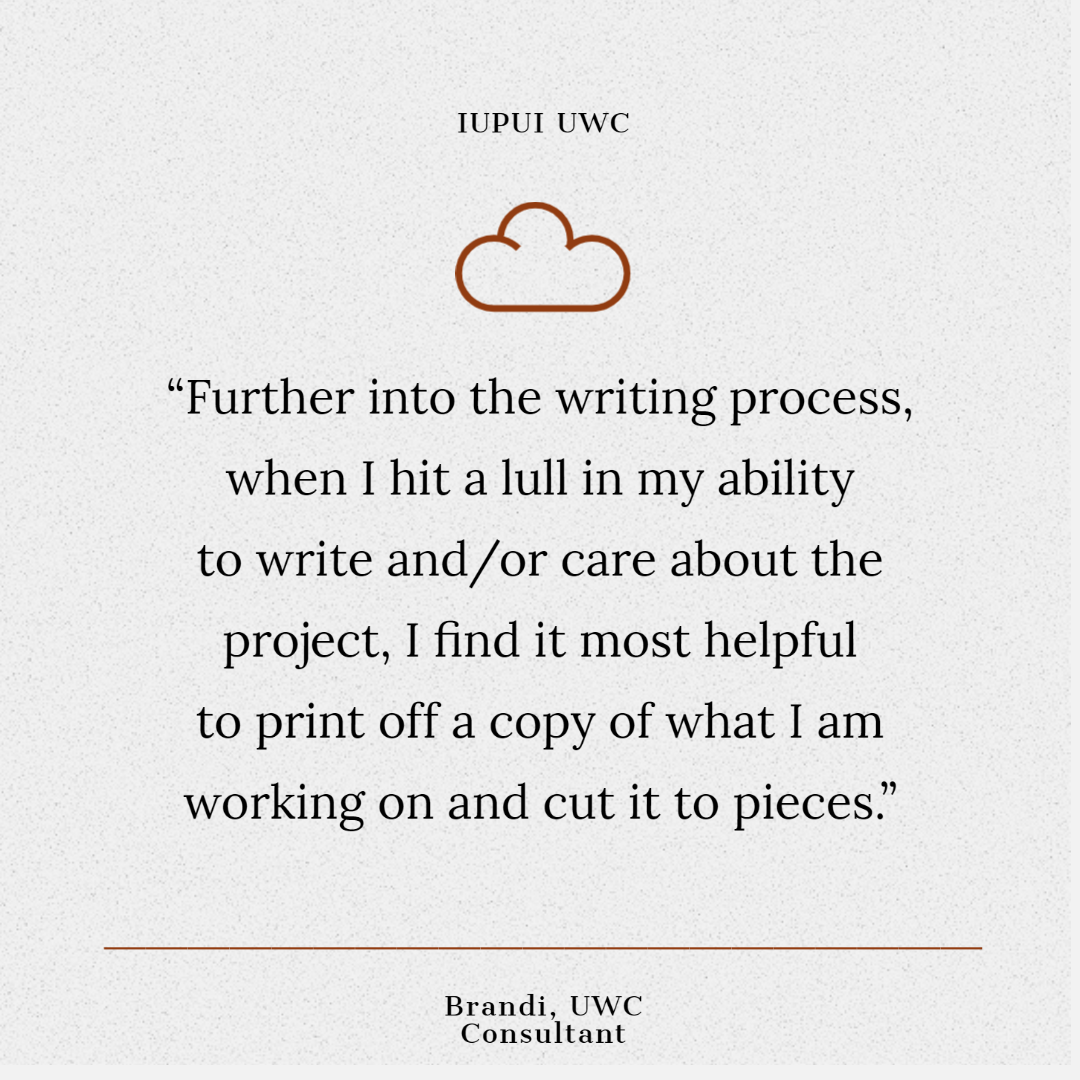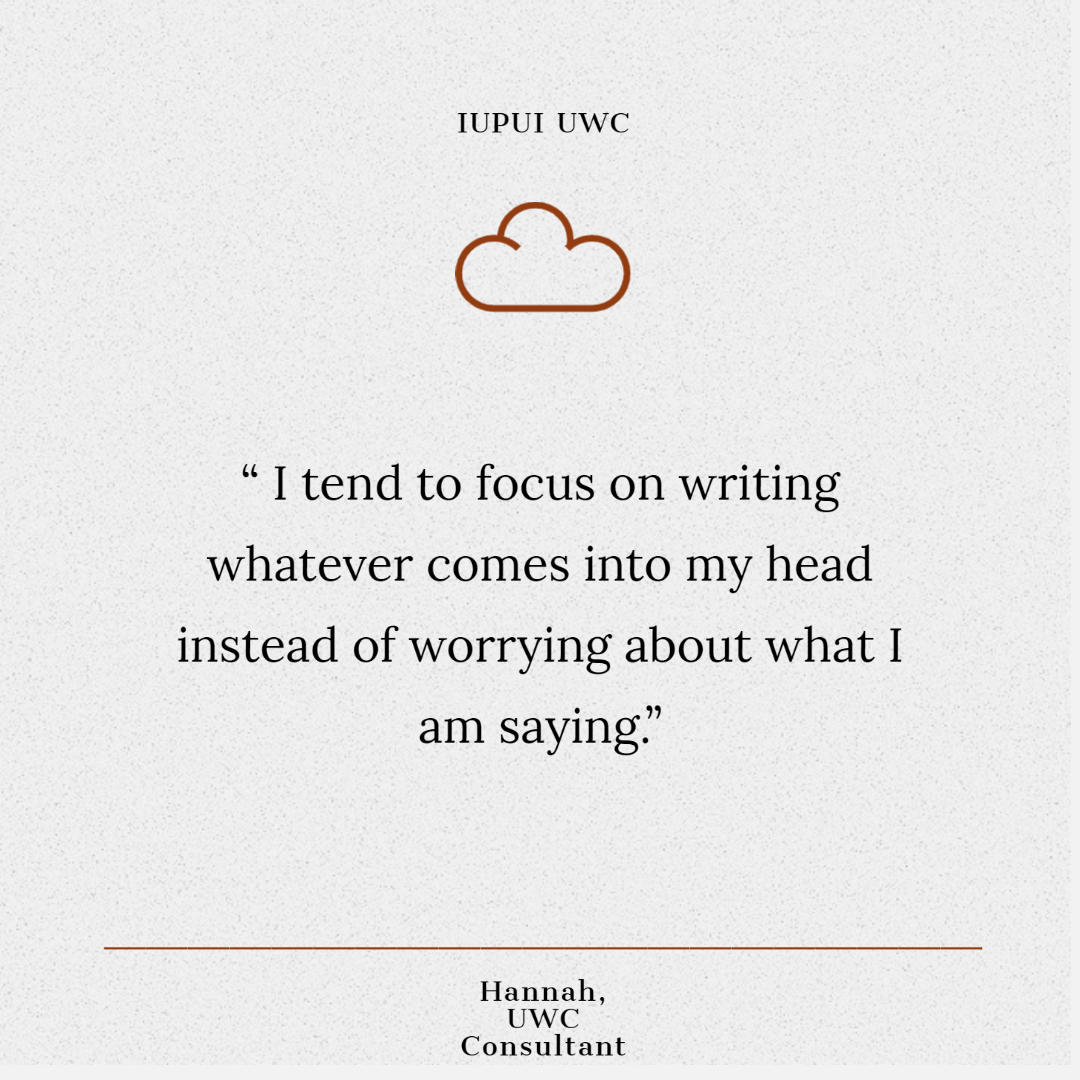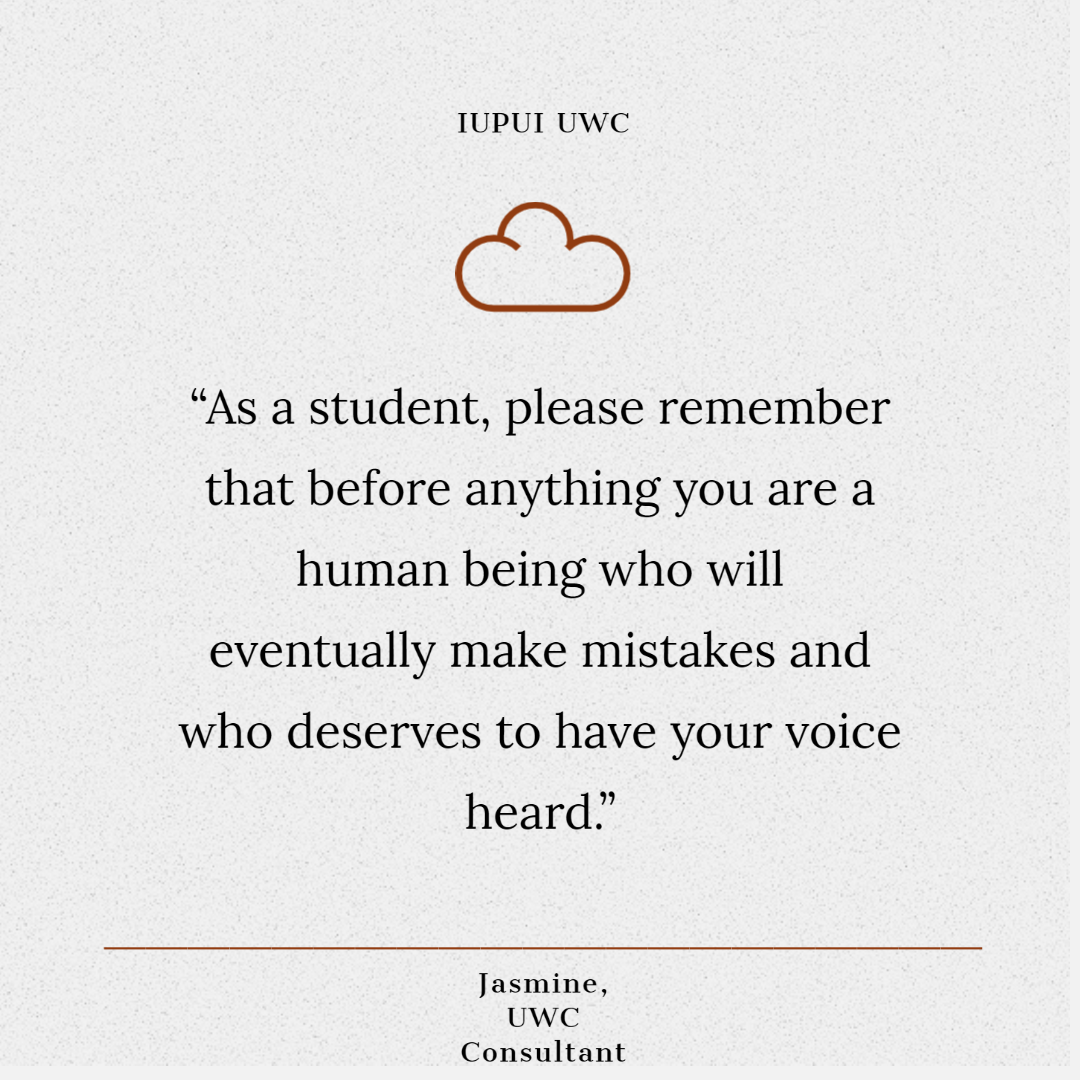Responses Compiled By: Lauren W.
Contributors: Brandi, Hannah, and Jasmine.
This week, I once again asked fellow consultants to share their writing process and how they go about beginning different writing projects. Below consultants Brandi, Hannah, and Jasmine will detail how they go about writing, and hopefully provide you with some tips and tricks to try when beginning your next writing project.

Brandi: “My writing process often begins with a Word document filled with quotes followed by my own thoughts. Orienting myself to a topic requires that I know what is being said in that area already and my opinions on it—what do I agree with? Disagree with? Have a story about? After trying to begin projects for years by writing in a linear fashion—intro, body, conclusion—I found that this often left me dissatisfied. I would change my stance or topic halfway through because I realized that I disagreed or did not care. I needed to do more preparation and freewriting at the beginning to better understand my own perspective before I could begin conveying it to others.
Further into the writing process, when I hit a lull in my ability to write and/or care about the project, I find it most helpful to print off a copy of what I am working on and cut it to pieces. I usually divide it by paragraph or longer sections if they center on the same idea. This allows me to physically move my ideas around to explore the organization and flow of my piece and see if I am separating ideas that would work better together. If the project is long or I don’t have access to a printer, I’ll accomplish a similar effect by putting comments out to the side of each paragraph with key words such as the theme, any sources I mention, and how it could flow into a new topic.”

Hannah: “When I write, I try to start with a basic idea and then just put down whatever I am thinking. I tend to focus on writing whatever comes into my head instead of worrying about what I am saying. Then I can go back later and edit what I wrote so that it flows better. I can rearrange paragraphs or sentences if I need to, I can add in information, I can look for a better way to say something. First drafts, for me, are more personal than second drafts. I write a first draft so that what I am trying to say is there for me to change as needed later.”

Jasmine: “As a student and employee, there is a flood of insecurities that occur when I engage in assignments. With the pressures of standard academics and the struggles of wanting my own voice to be heard, I always felt that I had no other choice but to chose to do one thing rather than the other. Soon after sharing my struggles with others, I recognized that there was a common denominator. Often times as students when we enter college we hold ourselves to a higher standard. Wanting to achieve perfection so we can receive validation that we’re doing something right and that we’re not messing up the opportunity to attend college. As a student, please remember that before anything you are a human being who will eventually make mistakes and who deserves to have your voice heard. We aren’t created to be perfect, but we are created to help one another by sharing our testimonies.”
Make an appointment with one of our fantastic consultants this Spring Semester and discuss your own writing process! Think becoming a UWC consultant might be the gig for you? Connect with your counselor to see how you can take W397/597 next semester, Fall 2021, and train to become a consultant!

